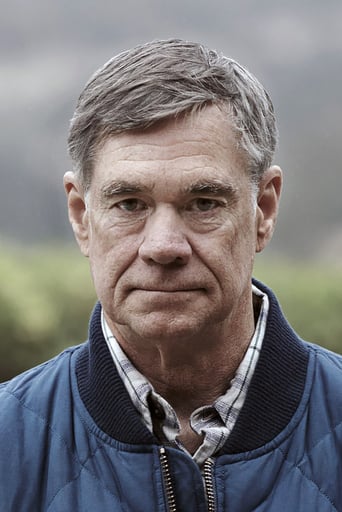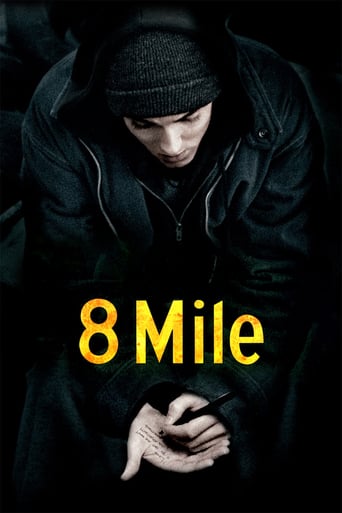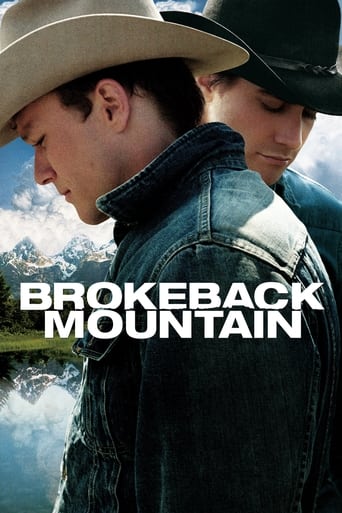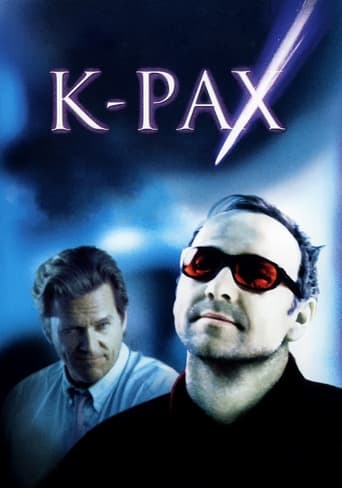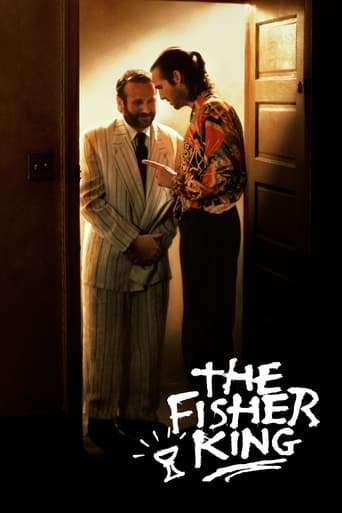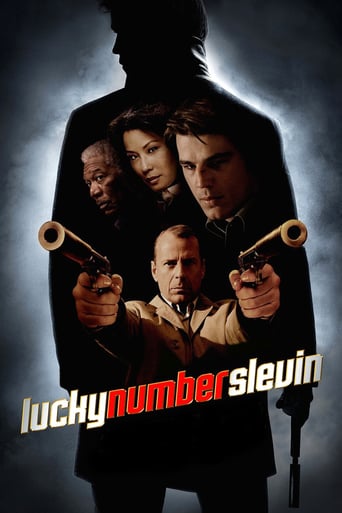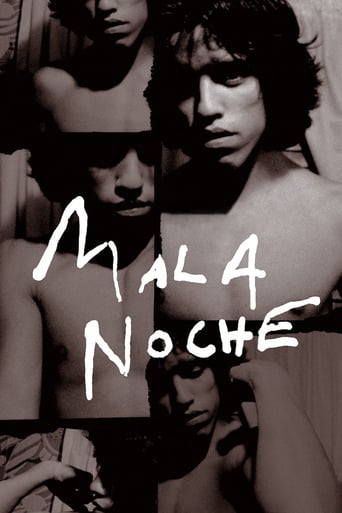
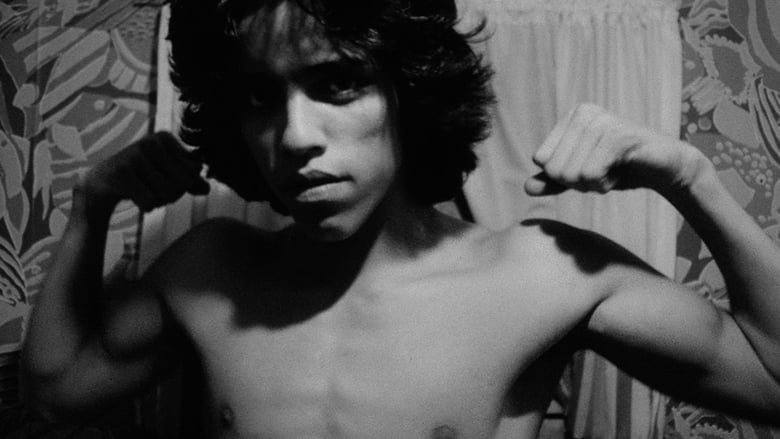
Mala Noche (1986)
Walt is a lonely convenience store clerk who has fallen in love with a Mexican migrant worker named Johnny. Though Walt has little in common with the object of his affections — including a shared language — his desire to possess Johnny prompts a sexual awakening that results in taboo trysts and a tangled love triangle.
Watch Trailer
Cast


Similar titles
Reviews
Mr. Van Sant, I just watched your film "Mala Noche" and I found it really sad and appalling that such a spectacular piece of art was so blatantly racist and bigoted. I was at first enthralled by the dark images and experimental camera work, style, and transitions. I loved the way you played with space on the screen- forcing the viewers to search for the flickers of light that would break up the pitch black- searching for information, letting oneself be guided by the narration to make sense of the powerful images. I liked how the camera, like the viewer, would slowly pan and search the space for meaning, finally resting on a subject and slowly revealing meaning. However, no matter how great a piece of art, it could never justify racism and bigoted statements. I was deeply offended how the character of your film would spit out these horrible statements like 'The Mexicans were stupid, that's why they were there on the corner looking for work,' just to mention one example. I was really upset not just by the bigoted statements of the main character, but also how the characters were displayed as buffoons; constantly making fools of themselves; with no real character depth. All characters of color in your film were portrayed as sub-humans who's purpose in life was merely as distractions to Walt, the intellectual and the only responsible, reasonable and cultured person in the film. To justify the racism of film by saying that your character Walt is the racist and you were just trying to portray the reality of the time period in Organ is no excuse. It was no excuse for skin heads and the Nazi film makers in the 40's and it is no excuse today. The only way a film maker could legitimately portray the reality of racism in a film is to either provide feedback through other voices or through actions and behavior of other characters in the film to negate the racist statements and show the reality that the characters views are just racist views of the character and not statements made by the film. You do non of that in Male Noche, and the actions and behaviors of the characters of color only prove the racist statements of Walt as truth. I watched your interviews and searched online to find interviews where you would at least acknowledge or apologize for overt racism of the film, but I was further disappointed when I found nothing. Your film Mala Noche, in my book, will be remembered in film history as the first bigoted and racist gay film, and not as a true piece of art.
OK, granted: The movie was filmed in the early or mid 80's I think, and you might even claim that the latino talent pool was not as big back then as it is now. But C"MON! The guys who were cast as the young Mexican homeless boys were HORRIBLE! Spanish is my first language and I could tell that the actors who portrayed JOhny and Robert were not fluent at all in Spanish which for this film it is a MAJOR point since they re supposed not to speak English. I guess that explains the reason why when Johny had dialogue, the camera was not on him, and the times when he spoke and the camera was on him there was no sync. I am 100 percent sure that they used someone else's voice ( a bad actor's at that) to do the voice over for Johny. For someone who speaks Spanish it was PAINFUL to listen to the monotone, emotion-deprived delivery of the lines. I don't know under what circumstances these two horrible actors were cast but I am sure the director did not do a thorough audition process to get the best actors. The actor who played Robert was better at ATTEMPTING to sound better in Spanish. I still don't know if he was fluent in Spanish, which it sounds like he was. And if he was then he was just saying the grammatically incorrect lines given to him by the director without complaining about not being correct. One of the examples is when he is being harassed by the white guy. Roberto says:" Para. No me molesto". Translated that means: " Stop. It doesn't bother me".or " Stop. I don't get bothered". Im sure the intention of the writer was: " Stop. Don't bother me" which should've been: "Para. No me molestes". The only character that spoke good Spanish was the guy who was telling the story of how they crossed the border. And I could bet the reason that being is because probably he really went thru that and he was just being interviewed ( he did not NEED to act)I doubt that was scripted. That part when he's talking, it totally threw me out of the movie, because it had a documentary feel to it and then to go back into the bad acting was like, disconnected. Among other things,it was torture when they had the Spanish speakers dialogue on the background. They kept on repeating the same dialogue over and over and over again! same lines over and over! I guess it would work for non-Spanish speakers, because they just hear a foreign language and they have no idea whats being said. But when you understand the language you get so frustrated that you wanna throw a shoe at the TV and make it shut up. I really like Gus Van Sant's directing but I have no idea, and im very curious to know what pressed or forced Mr Gus Van Sant to cast these horrible actors. Was it pressure from the producers, or did he honestly think these guys were the BEST?
I was fortunate enough to see this at the Sydney Film festival. I am a fan of Van Sants, having seen all his stuff and read his fiction- and I've always wondered if I would ever see this curiosity of a film. And what I expected to be nothing more than a real fledgeling of a film, with only a glimmer of the Van Sant that attracts many to his work- was in actuality a stunning, fully sustained episodic and tender Ka-pow! that was wonderfully made and full of all the visual tricks and flair that makes Van Sants movies so idiosyncratic and so ... well him. This was the biggest delight for me about it. I expected, simply because it is so hard to find and that it has no DVD release that it would be a mere trifle of a film. But it is anything but.I was moved, all the acting was top-notch. The main character was likeably deluded, such a victim of his own desire it was funny and warming at the same time. The Black and White and evident grain in occasional sound inconsistencies actually work for it; it helps draw the detail out of the locale and its people in a manner very reminiscent of Van Sants Idaho and Drugstore Cowboy. There are moments of confusion, of randomness, of erotica and tragedy. The music is wonderful, every camera angle delicately crafted, but never contrived or pretentious- full of humour and warmth. What a joy this film was and to me, seriously one of Van Sants best. Maybe its because I'm a gay man and with the exclusion of his Paris Je Teme segment, and elements of My Own Private Idaho, this is his only overtly gay story. And it plays real, with an almost documentary like realism (for example the scenes of language barriers between the the main protagonist and Pepper)- but then again its almost as theatrical as opera, playing it broad and surreal. I cant praise it highly enough. A real surprise, a delight. I hope it gets seen.
In the summary, the word "fools" should more accurately be another English word with four letters, but I doubt whether the regulations for this site will permit that. That is the subtitle for this movie and it does tell one side of the story. Another side involves the randomness of life in Portland, a city that's more like an overgrown small town with a big seamy underbelly and lots of folks eking out an existence on the margins. This movie shows with subtly limned images and snatches of wry, realistic dialogue just how vast and differentiated the landscape of "the margins" is in this town. And maybe, too, in that weird district of the Twilight Zone known as America.Twilight is a state of mind that provides the true setting for this story that seems to be a fragment of a greater whole, but nevertheless has its own peculiar beauty. The black and white photography is stunning and seductive, and perfect for the film noir desperation (occasionally melodramatic but never posturing) with which these characters seem to run their lives. The director uses chiaroscuro, the play of light and shadow over the faces and bodies of his players, to hint at people's emotions or to suggest the cluelessness with which they get through the day. Despite the sense of general confusion, there are poignant and powerful emotions that surface here, thanks to the skillfully nuanced photography and the expressiveness of the actors.The casting is perfect, but among the actors only Tim Streeter really seems to give a coherently thought-through performance. Streeter, to judge from his performance here, is an actor of brilliance and considerable sensitivity--it's sad that his only other credit is a 1987 appearance on 21 Jump Street. A lot of the shots in the movie are composed with great inventiveness, but the visual beauty that results never feels arty or contrived, mainly because of the gritty realities that encompass the characters' lives and passions.Certain scenes in this movie made me think of images that surface in the songs of indie bard Elliott Smith, whose music was used in Gus van Sant's much glitzier mainstream movie, Good Will Hunting. Images of lonely people smoking late nights away over cheap beers in loud bars, waiting for their sense of woundedness to dull sufficiently so that they can go back out on the street and face some semblance of life again. The use of music is yet another element that gives Mala Noche a distinctive flavor--the music credits cover several screens at the end of the movie--as one would expect with a director who is also a composer and musician in his own right.Poetic, frail, fragmentary and haunting, this is one of those movies where, even if you never quite get the story, certain images from it will nevertheless linger a long time in your memory after you have seen it.


